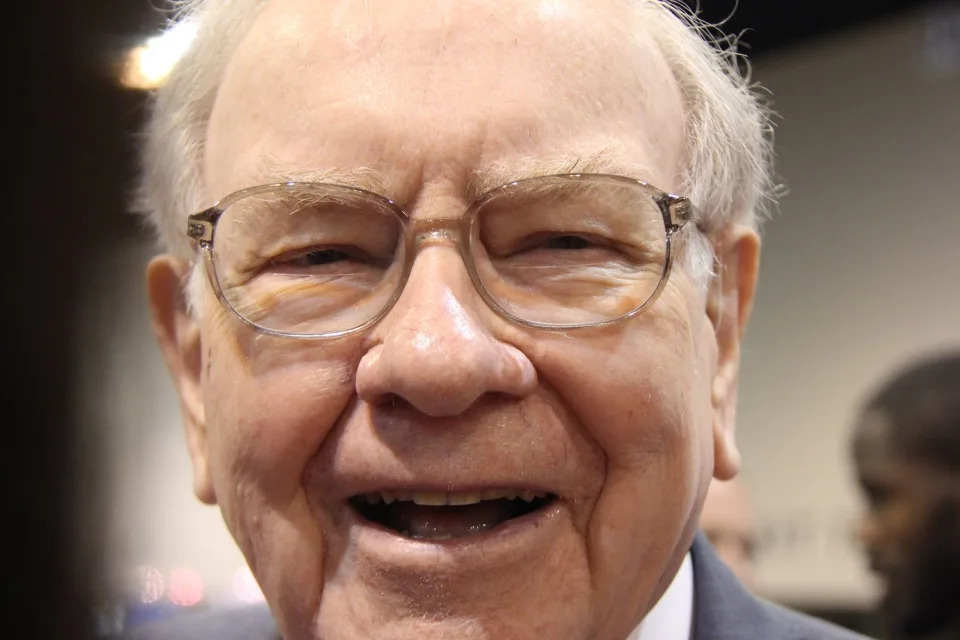Berkshire Hathaway Now Owns 27 Million Shares of This Stock. Should You Follow Warren Buffett's Lead?
Berkshire Hathaway (NYSE: BRK.A) (NYSE: BRK.B) sold off several stock positions during the second quarter, but Chubb (NYSE: CB) was one of the few stocks that Warren Buffett and his team kept accumulating, adding another 1.1 million shares in the second quarter.
This marks the fourth consecutive quarter that Berkshire added shares of the global insurer to its portfolio. The conglomerate now owns 27 million shares, or $7.4 billion in Chubb stock. Here's why it could be wise for investors to follow Buffett's lead today.

Why Buffett loves investing in insurance businesses
The insurance business has many attributes that appeal to long-term investors like Warren Buffett. For one, these companies enjoy consistent demand for their products. Chubb, for example, is one of the world's largest property and casualty insurers, covering risk categories that include personal automotive, homeowners, accident and health, agriculture, and reinsurance.
Another appealing aspect of the business is the cash flow it can generate. Insurers operate differently from traditional businesses by collecting their revenue (premiums) up front and paying out claims costs later. Because it doesn't pay until a customer files a claim, insurers sit on a pile of money they can hold and invest but don't own, called "float."
For Buffett, insurance companies and the cash flow they generate are a considerable portion of Berkshire's value, partly because, as he said in Berkshire Hathaway's 2021 letter to shareholders, insurance products "will never be obsolete, and sales volume will generally increase along with both economic growth and inflation."
Berkshire Hathaway owns several insurance companies under its umbrella, including GEICO, General Re, Berkshire Hathaway Reinsurance, and Alleghany, which it acquired two years ago for $11.6 billion .
Chubb has provided excellent returns for investors
Chubb's business has several advantages. It is one of the world's largest property and casualty insurers covering various risks. It has displayed excellent underwriting discipline in the highly competitive insurance industry and consistently beats its peers when it comes to writing profitable policies.
Thanks to its strong underwriting and steady demand, Chubb has steadily grown its top and bottom lines. Over the past decade, Chubb's revenue and net income have increased by about 11% compounded annually. In the last year, the insurer has delivered a record $15.2 billion in free cash flow, representing capital it can reinvest in the business, pay out in dividends, or use to buy back shares of its stock.
With its disciplined underwriting and steady demand, it's no surprise that Chubb has delivered excellent returns for long-term investors. The company has steadily raised its dividend over the past 31 years. Over that same period, Chubb's total compound annual return (including reinvested dividends) of 12.9% has outpaced the S&P 500 's 10.4% return.
Here's why Chubb can continue to deliver
JPMorgan Chase CEO Jamie Dimon recently warned that "there are still multiple inflationary forces in front of us" due to fiscal deficits, rising interest rates, and stubbornly high inflation. If Dimon is correct, Chubb can continue to deliver for investors for several reasons.
For one, the company enjoys steady demand, and the industry's backdrop favors insurers. Insurers have faced rising claims costs over the past several years due to weather-related events, economic and social inflation, and less availability of reinsurance coverage.
This is known as a "hard market" in insurance, and risks related to geopolitical conflict, cybersecurity, climate-related catastrophes, and unrest will likely stick around. As a result, insurers can raise premiums and be more selective about the policies they are willing to cover -- which can help investors stay ahead of any inflationary pressures should they reemerge.
Not only that, but Chubb has a $113 billion investment portfolio mainly invested in fixed-income securities. Last year, the insurer earned $4.9 billion in investment income, up 32% year over year. Through the first six months of 2024, its net investment income has increased another 27% from last year.
Chubb has a proven track record of growth in an expanding economy. However, if inflationary pressures persist, it has the pricing power to adapt to rising costs and the investment portfolio to take advantage of higher interest rates -- giving it excellent potential for the next decade and beyond.
Before you buy stock in Chubb, consider this:

